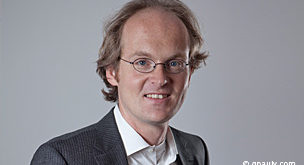Εκδήλωση – συζήτηση Σάββατο 25/5, 6.30μ.μ., ΚΑΠΗ Πόρτο – Ράφτη Θα μιλήσει : Σταύρος Μαυρουδέας, Καθηγητής Παντείου, υποψήφιος στις ευρωεκλογές Θα ακολουθήσει συζήτηση με συμμετοχή και άλλων υποψήφιων. Ευρωεκλογές: ψηφίζουμε ΑΝΤΑΡΣΥΑ – Ανατρεπτική Συνεργασία ...
Read More »DSGE models — a total waste of time
from Lars Syll While one can understand that some of the elements in DSGE models seem to appeal to Keynesians at first sight, after closer examination, these models are in fundamental contradiction to Post-Keynesian and even traditional Keynesian thinking. The DSGE model is a model in which output is determined in the labour market as in New Classical models and in which aggregate demand plays only a very secondary role, even in the short run. In addition, given the fundamental...
Read More »It’s time to give Labor’s first term a scorecard – have we actually seen any transformative vision?
My Budget response from The Conversation This week’s budget was Treasurer Jim Chalmers’ third and – for practical purposes – final for the current parliamentary term. Even if the 2025 election is delayed long enough to give Labor another budget, that speech would represent more of an election manifesto than any deliverable legislation. We are therefore now in a position to assess the Albanese government’s record on public spending and taxation. Most strikingly, the...
Read More »Gaza in context: past, present, & future
Ilan Pappé is a brilliant Israeli historian & his scholarship exemplifies the meaning and importance of intellectual integrity. Below is a link to his talk titled “Gaza in context: past, present, & future”. I urge you to watch it & share it (the talk runs from minute 28 to minute 76). We all abhor Holocaust […]
Read More »Lost opportunities?
from Peter Radford A pile of bricks is not a house. A group of individuals is not an economy. A lot has to happen between the one and the other. Which is why writing theories about economies as if it were simply an accumulation of individuals and their associated capital base misses the mark. Nor is it simply a matter of how those individuals behave —rationally or not — their interactions create novelty that cannot and does not exist at the individual level. Of course economists...
Read More »Very Ill Again
I need to crash
Read More »The problem with electric vehicles
from Dean Baker For the last quarter century, those of us hoping we could slow global warming were anxious to see a quick conversion to electric vehicles (EVs). If we could get most people using electric vehicles, and have the energy coming from clean sources, we could radically reduce greenhouse gas emissions. The problem was that EVs were considerably more expensive than their conventional counterparts. There were savings in operation due to lower maintenance, and the electricity...
Read More »Overall and core Consumer Price Index (CPI) both increased by 0.4 percent in March
It appears rent, transportation, and medical care services are the culprits holding up a decrease in inflation. Medicare does not surprise me at all. Harvard School of Health blames the rise of prices on administrative expenses, corporate greed and price gouging, and higher utilization of costly medical technology. What to Look for in the April CPI by Dean Baker CEPR The overall and core Consumer Price Index (CPI) both increased by 0.4...
Read More »With a modest financial transactions tax, Jim Simons would not have been superrich
from Dean Baker The New York Times reported that Jim Simons, the founder of Medallion hedge fund, died this week. As a result of his fund, according to the article, he accumulated more than $20 billion over his lifetime. Simons was a math genius who had made many important breakthroughs in various areas of math. Back in the 1980s, he decided that he could make far more money on Wall Street than in doing math at a university. He thought that with sophisticated algorithms and cutting-edge...
Read More »Ross Gittins: An appreciation
For quite a while I’ve been meaning to write a piece appreciating Ross Gittins’ 50 year run as Australia’s leading economic journalist. He’s one of the few who is neither an ideologue nor a recycler of corporate talking points (no names, no pack drill, but most of my readers will be able to think of plenty of examples).This plan was pushed to the top of my agenda when Ross gave an exceptionally generous donation to support my Brissie to the Bay cycle ride in support of MS Queensland....
Read More » Heterodox
Heterodox




